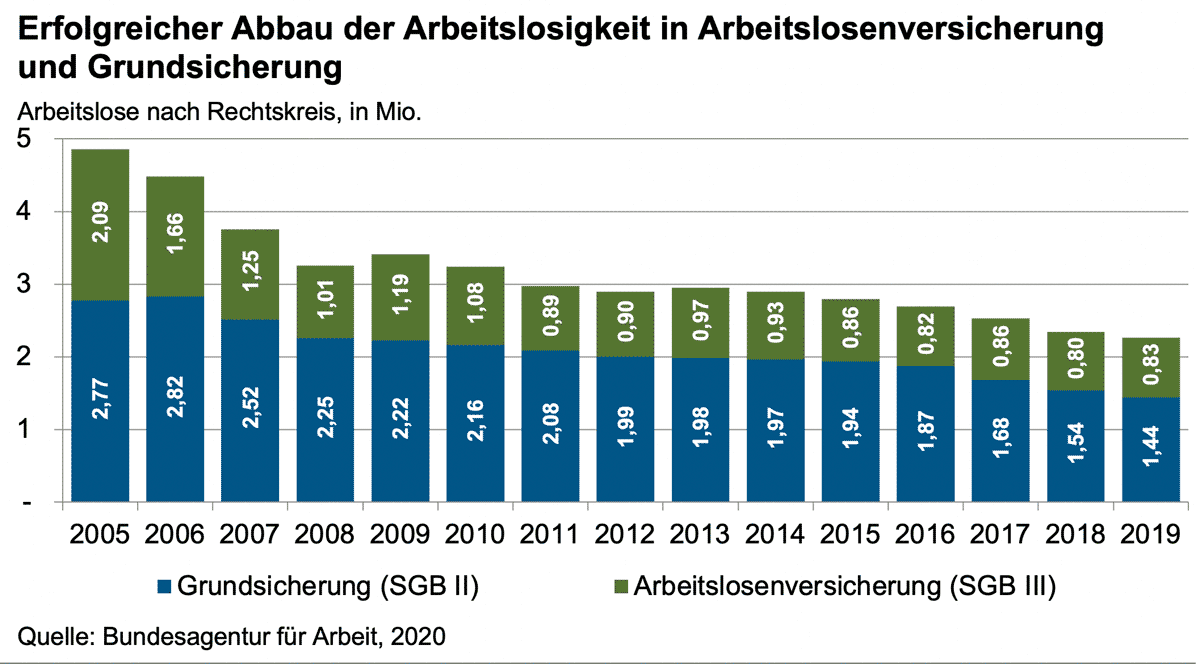Labour market policy
A successful labour market policy is of central importance for people in Germany and for the German economy. Work not only means being able to earn a living, but also social participation, recognition and personal fulfilment. In view of the need for qualified employees and demographic change, it is crucial for the economy and society that all potential is exploited to the full and that all people can participate in the labour market in the best possible way.

©AdobeStock Savvapanf Photo
Aligning labour market policy with the challenges of the future
20 years ago, Germany was the "sick man" of Europe with over 5 million unemployed. Since then, the labour market situation has improved significantly and the labour market has long been an anchor of stability. The consequences of the coronavirus pandemic and the war of aggression in Ukraine were also mitigated thanks to the massive use of short-time working allowances.
However, the situation has now reversed, as the weak economy is also affecting the labour market. The reserves of
have been almost completely used up due to the high expenditure on short-time working allowances and unemployment is rising. Matching problems on the labour market are increasing. The retirement of baby boomers is increasing the shortage of skilled labour, while long-term unemployment is becoming more entrenched.Qualifications in demand on the labour market are the best protection against unemployment
Fundamental reform of labour and social administration necessary
Unemployed people are supported either by the contribution-financed unemployment insurance (SGB III) or the tax-financed citizen's allowance (SGB II). However, employers do not want two points of contact simply because unemployed people are looked after in different legal systems. The system of labour and social administration with employment agencies, joint institutions and municipal job centres is highly complex, non-transparent and therefore unnecessarily expensive. The labour and social administration for people capable of work must be fundamentally reformed. Only with a comprehensive structural reform, which also includes the bundling and pooling of cash benefits, will the labour administration remain capable of acting. Then it can fulfil its mission of getting people into work and supporting companies in securing jobs and skilled workers.
Unemployment insurance to focus on core tasks
Short-time working allowance: an important instrument in times of crisis
More personal responsibility in basic income support
The activating welfare state in Germany must be strengthened and the focus must once again be placed on those who are actually in need. In addition to more incentives to work through improved regulations on additional earnings, more commitment in the placement process is also required for sustainable basic income support. Placement must be prioritised again. At the same time, job centres must be relieved of unnecessary administrative work and benefit legislation must be made less bureaucratic. Existing labour market policy support instruments must be combined more flexibly and sensible support chains must be formed in which the next support steps are planned in advance, what has been achieved is regularly reviewed and readjusted if necessary. Systematic skills diagnostics, intensive support in the necessary cases and follow-up support even after successful integration are crucial in order to stabilise and secure employment.








